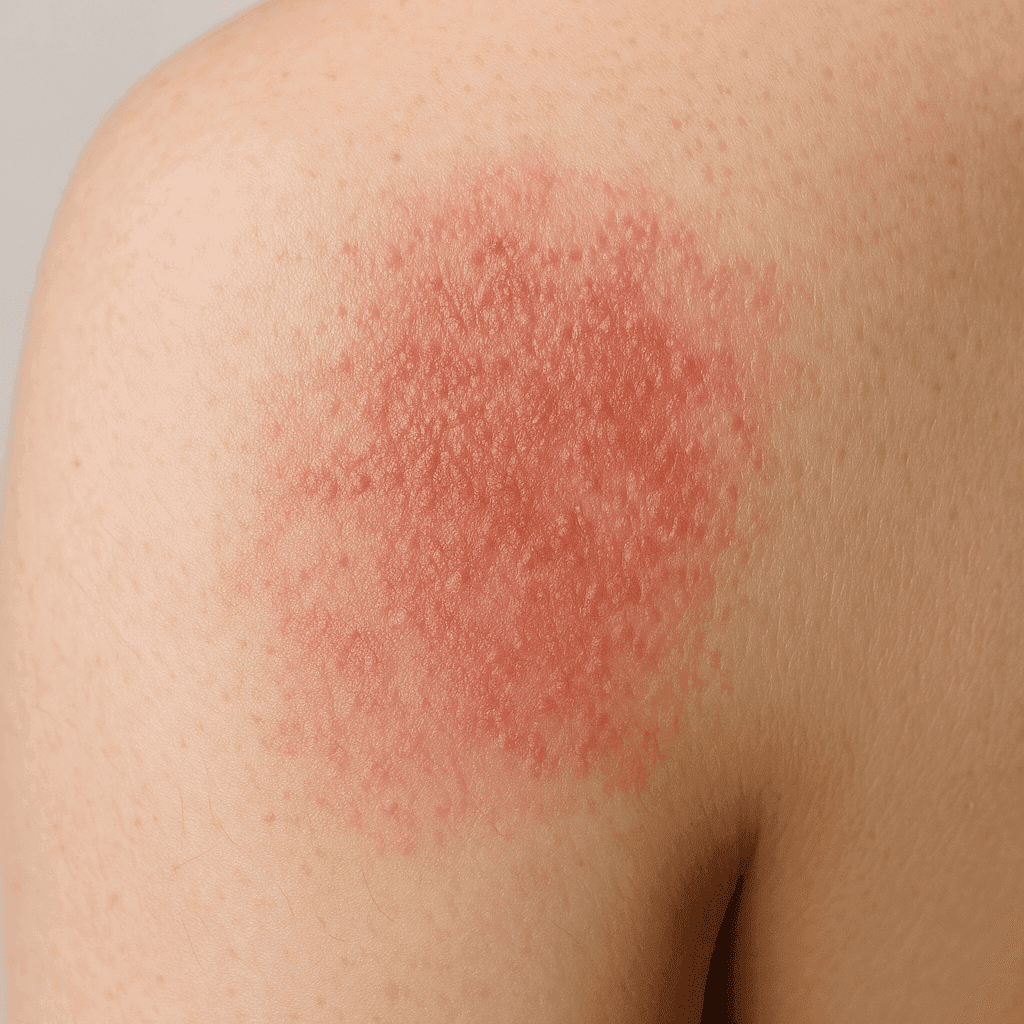Dermatitis
What is dermatitis?
Dermatitis, also known as dermatitis, is a general term describing inflammation of the skin. It can include various forms, such as atopic dermatitis, contact dermatitis or seborrheic dermatitis. Each of these types has its own characteristic symptoms and triggers. In general, dermatitis manifests as redness, itching and dry skin.
Different types of dermatitis
There are several types of dermatitis, each with unique characteristics. Atopic dermatitis mainly affects children, but can also occur in adults. Contact dermatitis is the result of direct skin contact with irritants. Seborrheic dermatitis often occurs in areas rich in sebaceous glands, such as the scalp.
Causes of dermatitis
Dermatitis can be caused by many factors. Genetic factors play a major role, especially in atopic dermatitis, where there is often a familial burden of the disease. Environmental factors such as air pollution, climate change and contact with chemicals can also contribute to the disease.
Allergies and their impact on the skin
Allergies are one of the most common triggers of dermatitis. Contact with allergens, such as pollen, animal dander or certain foods, can lead to skin reactions. It is important for people with allergic tendencies to avoid these agents and take appropriate preventive measures.
Symptoms of dermatitis
Symptoms of dermatitis can vary depending on the type of dermatitis, but most commonly include itching, redness, dryness and cracking of the skin. Atopic dermatitis often presents with severe itching and eczema. Contact dermatitis usually causes redness and blisters at the site of contact with the allergen.
How to distinguish dermatitis from other skin diseases
Dermatitis can be confused with other conditions, such as psoriasis or eczema. It is crucial to understand that dermatitis is often recurrent and may be related to external factors. When in doubt, it is always a good idea to consult a dermatologist.
Diagnosis of dermatitis
Diagnosis of dermatitis usually begins with a detailed history and physical examination. Your doctor may order allergy tests, such as skin tests or blood tests, to identify potential allergens. In some cases, a skin biopsy may be necessary.
When to see a doctor
If the symptoms of dermatitis are severe, recurrent or do not respond to home treatments, it is worth consulting a dermatologist. Professional diagnosis and implementation of appropriate treatment are key to successful management of the disease.
Treatment of dermatitis
Treatment of dermatitis includes both pharmacological methods and home remedies to relieve symptoms. Antihistamines and corticosteroids are often used to relieve itching and inflammation. It is also important to maintain proper hygiene and moisturize the skin.
Home remedies to relieve symptoms
Home remedies can be effective in relieving the symptoms of dermatitis. Using cold compresses, bathing in water with oatmeal and using humidifiers can provide relief. The importance of diet in treating dermatitis can also not be overstated - a diet rich in omega-3 fatty acids and avoiding allergens can promote skin health.
Prevention of dermatitis
Preventing dermatitis involves daily skin care and avoiding triggers. Regular moisturizing of the skin, use of mild cosmetics and avoidance of harsh sun are the basic principles of prevention.
The role of stress in dermatitis
Stress can exacerbate the symptoms of dermatitis, so it is important to manage stress through relaxation techniques such as meditation, yoga and regular physical activity. Avoiding stress not only helps control dermatitis, but also improves overall well-being.
Frequently asked questions
Is dermatitis contagious?
No, dermatitis is not contagious. It is a reaction of the skin to internal or external factors, but it is not transmitted from one person to another.
Can dermatitis be completely cured?
Dermatitis is a chronic disease, which means that it can be difficult to cure completely. However, proper treatment and prevention can significantly improve patients' quality of life.
What is the latest research on dermatitis?
Dermatitis research is focused on understanding genetics, the role of the microbiome and new biological therapies. New methods are still being sought that can help better control symptoms and improve patients' lives.
Summary
Dermatitis is a complex disease that requires a personalized approach. Understanding the causes and symptoms, as well as using appropriate treatment and prevention methods, is key. Remember to consult your dermatologist regularly and follow your doctor's recommendations. With the right measures, you can effectively manage dermatitis and improve your quality of life.

